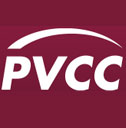Piedmont Virginia Community College is a public community college located in Charlottesville, Virginia. The following is a detailed introduction to the school:
School Overview
Founding time and background: Founded in 1972 as part of the Virginia Community College System, it aims to provide higher education opportunities for residents of Charlottesville and surrounding Albemarle, Buckingham, Fluvanna, Greene, Louisa and Nelson counties.
Campus location and facilities: The main campus is located at 501 College Avenue in Charlottesville, Virginia, including the main classroom building, V. Earl Dickinson Humanities and Social Sciences Building, Keats Science Building and the Sturtz Business and Career Development Center. In addition, the Eugene Giuseppe Center opened in Stantsville, Virginia in August 2012, and a teaching site opened in the Jefferson School Building in downtown Charlottesville in January 2013.
School size: 5,312 students in the fall of 2019, and 5,684 undergraduates in 2020, of which 79% were part-time students.
Professional settings
Degree programs: Associate degree programs are offered, generally requiring two years of full-time study and requiring 60-72 credits. These courses cover a variety of fields such as art, business, education, health professions, humanities, protective services, science, technology and mathematics, and trade and personal services.
Certificate courses: including one-year certificate courses and vocational study certificate courses, which require 9-59 credits and usually require two to four semesters of full-time study to complete. They are designed to prepare students for specific jobs, career changes or skill upgrades, involving majors such as accounting, administrative support, advanced criminal justice, and business management.
Fast training courses: The project duration ranges from a few weeks to a few months, which can help students obtain industry qualifications and enter the workplace, such as clinical medical assistants, CNC milling basics, and computer tomography.
Teaching features
Transfer education: Some degree courses offered by the school prepare students to transfer to four-year schools to continue to pursue a bachelor's degree, helping students to smoothly transition to a higher level of education.
Practical teaching: Focus on the cultivation of practical ability. Through experimental courses, internships, project practices, etc., students can apply theoretical knowledge to actual operations, improve their ability to solve practical problems, and enable students to better adapt to future jobs.
Small class teaching: Smaller class sizes help teachers pay attention to the learning and growth of each student, provide students with a more personalized educational experience, promote interaction and communication between teachers and students, and improve teaching effectiveness.
Faculty
The college has a team of highly qualified teachers who not only have solid professional knowledge, but also can provide personalized teaching guidance based on the characteristics and needs of students, helping students to better master knowledge and skills. In addition, teachers also actively participate in scientific research and academic activities, and continuously improve their teaching level and professional quality.
Student Life
Social Activities: The school has many student organizations and clubs, covering various interest areas such as academics, culture, art, and sports, providing students with rich participation and leadership opportunities, which helps to cultivate students' comprehensive qualities and team spirit.
Sports Activities: The college's sports team is called the Panthers. Students can participate in various sports such as basketball, football, volleyball, etc., which can enhance physical fitness through physical exercise and enrich campus life.
Tuition and Aid
Tuition: In the Fall 2024/Spring 2025 semester, the tuition per credit hour for in-state students is $164.40, the institutional fee is $1.75, and the student activity fee is $2.90, totaling $169.05; the tuition per credit hour for out-of-state students is $353.00, the capital fee is $26.00, the institutional fee is $1.75, and the student activity fee is $2.90, totaling $383.65.
Aid: The school provides students with a variety of financial aid channels, 62% of undergraduates receive grants or scholarships, with the average amount of scholarships or grants being $1,354, helping students reduce their financial burden and ensure they can successfully complete their studies.
-

Harvard University
-

Massachusetts Institute of Technology
-

South University
-

University of West Georgia
-

Stanford University
-

Northwest Nazarene University
-

Hawaii Pacific University
-

Shorter University
-

Nova Southeastern University
-

Saint Leo University
-

Mesoamerican University
-

Istmo University
-

Mariano Galvez University of Guatemala
-

Regional University of Guatemala
-

Galileo University
-

Francisco Marroquín University
-

Rafael Landívar University
-

University of the Valley of Guatemala
-

University of San Carlos of Guatemala
-

Technological Institute of Tlaxcala Plateau
-

Golfo University
-

Technological University of South Sonora
-

Technological University of Huejotzingo
-

Tizimín Institute of Technology
-

Chilpancingo Institute of Technology

